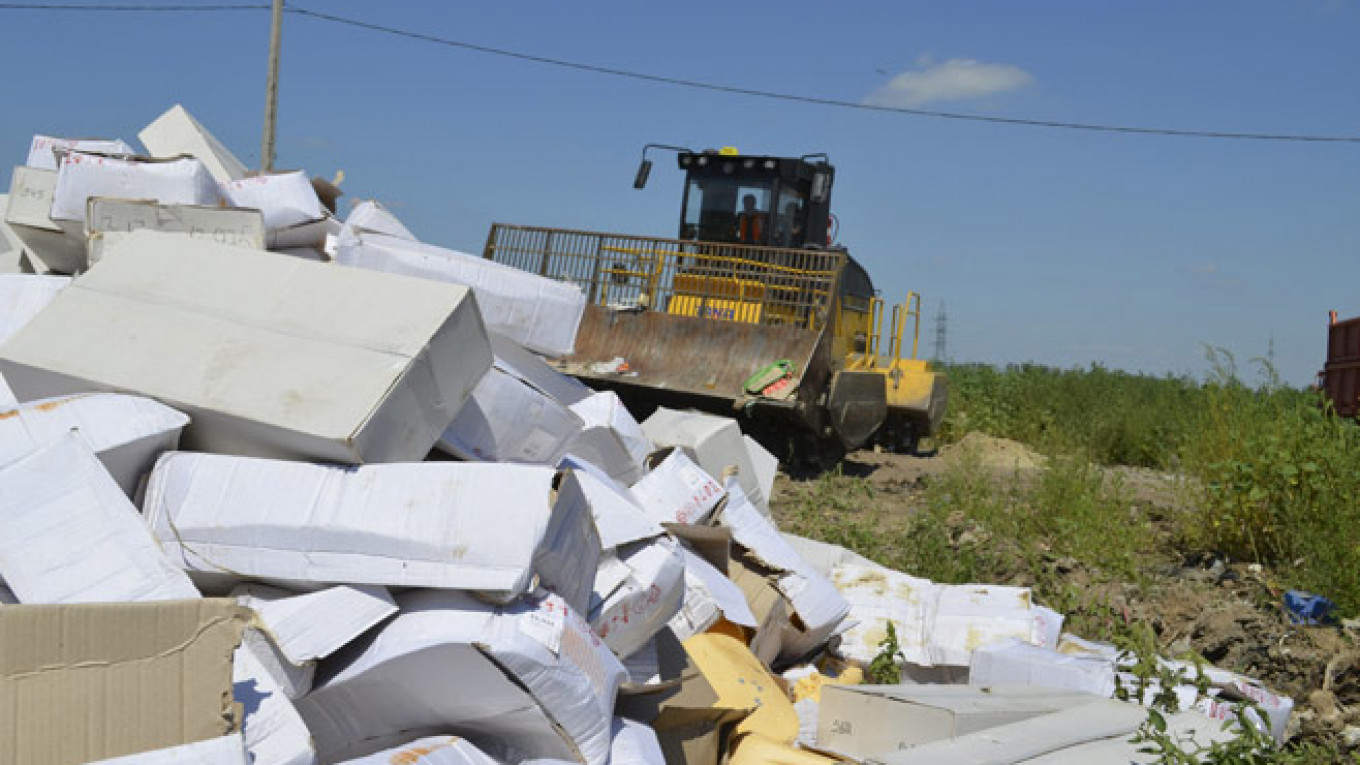???°́?????†????: sanction
If you’ve been following the news here in Russia, you know that the word of the week is ???°?????†???? (sanction), which means “something bad done to Russia.” Or maybe the word of the week is ?°???‚??-???°?????†???? (anti-sanction), which means “something bad done to Russia.”
You see the problem. Everything having to do with ???°?????†???? is fraught and confusing. I must admit that I’ve never liked the word, neither the English sanction nor the Russian ???°?????†????, because it has two diametrically opposed definitions. One meaning is an approval or permission. In order for a demonstration to take place it must get ???°?????†???? (sanction), and if it doesn’t receive one, it becomes ???µ???°?????†?????????€?????°?????°?? ???µ?????????‚?€?°?†???? (unsanctioned demonstration), that is, illegal and very wicked.
The verb ???°?????†?????????€?????°?‚?? (to sanction) always means to approve of something or to grant permission for something, even if that something is nasty: ?????????? ???°?????†?????????€?????°?»?° ?µ???? ?°?€?µ???‚. (The judge signed a sanction for his arrest.)
But then there are the other kinds of sanctions, the ones that are not approvals or permissions but just the opposite — actions taken against a state, organization or individual as punishment for violating rules or laws. These are the things that the West, broadly speaking, has imposed against Russia. You read about new ones every day.
So we’ve got “permission sanctions” and “punishment sanctions.” And then things get even more confusing: ???€?µ?·?????µ???‚ ?’?»?°?????????€ ?????‚???? ?????????????°?» ?????°?· ???± ???‚???µ?‚???‹?… ???µ?€?°?… ? ?????????? ???° ???°?????†????. (President Vladimir Putin signed a decree on measures that Russia will take in response to the sanctions.) These are what people call ???????‚?€???°?????†???? (counter-sanctions) or ?°???‚??-???°?????†???? (anti-sanctions). They are “punishment sanctions” against the folks imposing “punishment sanctions” on Russia.
But the problem is: ?’ ?€?????????????????? ???€?°?????‚?µ?»?????‚???µ ???€???·???°?»??, ?‡?‚?? ???????‚?€???°?????†???? ???€?µ?????‚ ?????????????????µ ? ?¤. (The Russian government admitted that counter-sanctions harm the Russian economy.) So ?°???‚??-???°?????†???? are really something like ???°????-???°?????†???? or ???µ?±?µ-???°?????†???? (self-sanctions).
Russians themselves find all these sanctiony words confusing. For example, the adjective for “a product banned under a sanction” is ???°?????†?????????‹??: ???¶?µ ???????‡?‚???¶?µ???? 500 ?????»?????€?°???????? ???°?????†?????????‹?… ???€?????????‚????, ?????‚???€?‹?µ ?»?????? ???€?????µ?·?»?? ?? ? ?????????? ?? ?€???‡?????? ???»?°????. (Five hundred kilograms of products banned under the sanctions and brought into Russia in hand luggage have already been destroyed.)
But spell-check doesn’t recognize that adjective, and so you can find plenty of newspapers using the adjective ???°?????†?????????€?????°?????‹??: ???µ?€???°?? ???°?€?‚???? ???°?????†?????????€?????°?????‹?… ???€?????????‚???? ?±?‹?»?° ???????‡?‚???¶?µ???°. (The first batch of sanctioned products was destroyed.) That actually means that permitted products were destroyed.
Do you have a headache yet? There are easier ways to talk about this. You can say ?·?°???€?µ?‰?‘?????‹?µ ?? ???????·?? ???€?????????‚?‹ (products forbidden for import). Or you can use the word ?·?°???€?µ?‚ (ban): ?·?°???€?µ?‚ ???° ???????· ?€?????° ?‚?????°?€???? ???· ?·?°???°?????‹?… ???‚?€?°?? (a ban on import of a number of goods from Western countries). Or the word ?????±?°?€????: ? ?????????????????µ ???€???????????»?????‚???µ???????µ ?????±?°?€???? — ?·?°???€?µ?‚ ???????·?° ?? ? ?????????? ???‚???µ?»?????‹?… ?????????? ???µ?»?????????…???·???????‚???µ???????? ???€?????????†????. (The Russian food embargo is a ban prohibiting the import of certain kinds of produce.)
Or use the slang terms ???°?????†?????????° and ?·?°???€?µ?‰?‘?????°: ???°?????†?????????? ?±???????‚ ???????‡?‚???¶?°?‚??. (They’re going to destroy the banned stuff.) ???°???‘?» ?? ???????????µ ?€?µ???‚???€?°?? ?? ?·?°???€?µ?‰?‘???????? (I found a restaurant in Moscow with bootleg products.)
See, it’s like Prohibition, only more confusing.
Michele A. Berdy, a Moscow-based translator and interpreter, is author of "The Russian Word's Worth" (Glas), a collection of her columns.
A Message from The Moscow Times:
Dear readers,
We are facing unprecedented challenges. Russia's Prosecutor General's Office has designated The Moscow Times as an "undesirable" organization, criminalizing our work and putting our staff at risk of prosecution. This follows our earlier unjust labeling as a "foreign agent."
These actions are direct attempts to silence independent journalism in Russia. The authorities claim our work "discredits the decisions of the Russian leadership." We see things differently: we strive to provide accurate, unbiased reporting on Russia.
We, the journalists of The Moscow Times, refuse to be silenced. But to continue our work, we need your help.
Your support, no matter how small, makes a world of difference. If you can, please support us monthly starting from just $2. It's quick to set up, and every contribution makes a significant impact.
By supporting The Moscow Times, you're defending open, independent journalism in the face of repression. Thank you for standing with us.
Remind me later.


